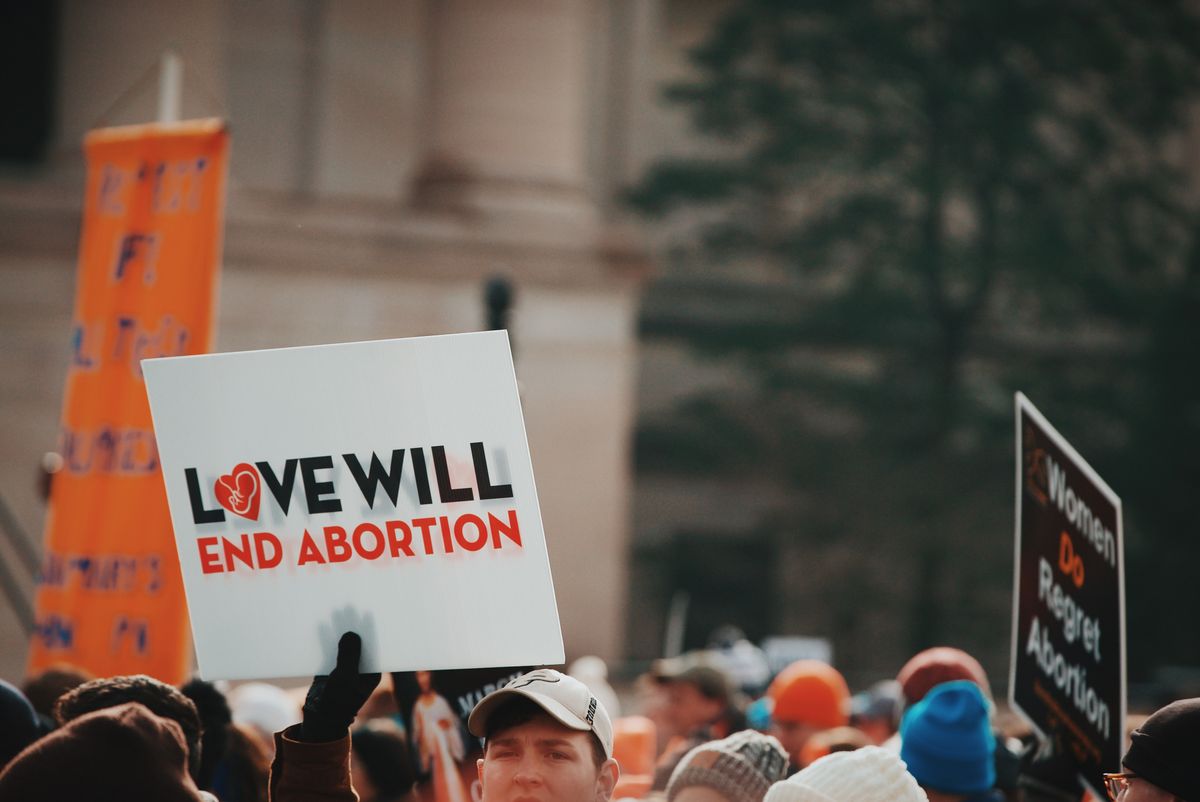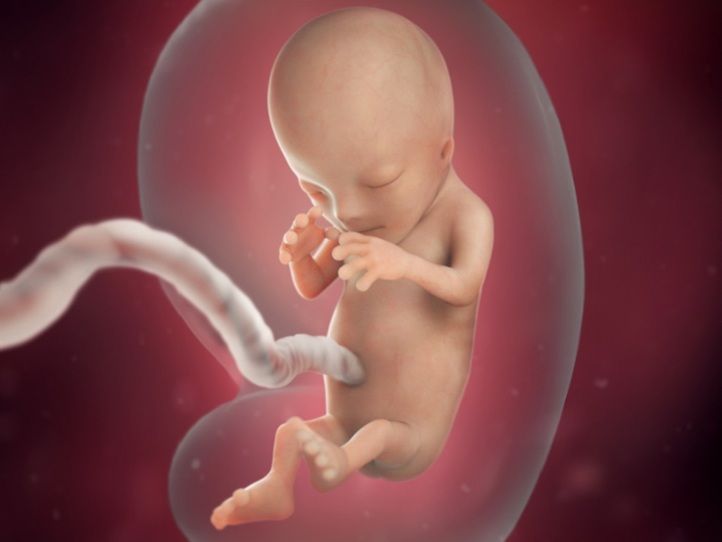Abortion and the Gospel
The abortion question has a definitive answer. And it comes from the sole Giver of life.

“My body, my choice.” “It’s just a clump of cells.” “Abortion is better than bringing a child into a world full of suffering” “Abortion is reproductive rights.”
If you’ve ever paid attention to the abortion debate, you must have surely come across these statements. It forms some of the many, though prominent, arguments given by those who support abortion. At first glance, they may appear to be valid and pretty convincing. Who would want to argue against the health and well-being of a woman afterall? Could there be some truth, if not fully, in them? These are burning questions, prevalent within the Christian community as well.
Thankfully, we have the Bible through which we can evaluate these claims and truly know what God’s heart is on this matter.
Abortion shouldn’t be a dilemma for a Christian.
What is an abortion?
Abortion is the killing of innocent human beings.
However, the dictionary definition states that, abortion is the "termination of a pregnancy after, accompanied by, resulting in, or closely followed by the death of the embryo or fetus".1
We must be careful to make the distinction between these definitions because the latter caters to scientific language. However, by doing so it masks the reality of what abortion actually entails, which is gruesome in nature.
The first definition is crucial because it clearly states that:
- A ‘human’ (the baby) is killed in the process
- It is not a natural death
- These humans are innocent
The Gospel Truth on Abortion
In Genesis, we are told that God breathed the breath of life into Adam by which he became a living person (Genesis 2:7). Humans are made in the image of God (Genesis 1:26). Despite the fall caused due to disobedience, both Adam and Eve continued to live physically though spiritually they were dead. The gospel of salvation through Jesus Christ is the remedial story that caters to our spiritual and eternal life. In the death and resurrection of Christ, sinful men who put their trust in Jesus and repent, find forgiveness and live with God in His presence, forevermore in newness.
There are three takeaways for us:
- God intends for us to live
- God is the sole giver of life (both physical and spiritual)
- Our transformed lives reflect Jesus’ character
Psalm 139:13 and Jeremiah 1:5 clearly show that not only does God form us in our mother’s womb but that He knows us and has a plan for our lives even before we are born. It also follows that if God is the sole giver of life, He is the only one who has the authority to take that life away. An abortion wrongly places the power to end life with humans and thereby interferes with God’s plan. Basically, we are playing god and that is a sin.
We also know from the Bible that God hates hands that shed innocent blood (Proverbs 6:17). Babies in the womb are innocent (they have sin nature but have not yet committed sin) no matter in what state they were conceived. In abortion, they are unjustly killed for no fault of their own. Yet they are treated with the consequences of a severe crime - death itself. It must truly grieve God’s heart greatly when children in the womb are discarded by demeaning their God-given human value.
It is plainly evident, therefore, from scripture that abortion is morally wrong and a sin in God’s eyes. One may argue that since there is no biblical verse catering directly to abortion, it is permissible. However, such reasoning chooses to willfully disregard all the above verses that clearly lay principles by which we can definitively take a stance on abortion. The lack of a particular word in the Bible should not be equated to its silence on the matter. The doctrine of the Trinity is a case in point.
Having laid the biblical foundation I will now proceed to quickly counter the arguments for abortion presented at the beginning of this article.
The lack of a particular word in the Bible should not be equated to its silence on the matter.
Common Arguments
My body, my choice
This is correct. One should have autonomy over their body. An abortion, however, is having autonomy over another person’s body - an adult having autonomy over the child’s body. In most cases, an abortion is chosen so that the woman can ultimately live, though the reasons for this ‘living’ can be defined in many ways. We can say that the choice of the woman is towards life for herself. Why do we then deny that very choice to the other person in the question - the baby?
Secondly, the baby is not a part of the woman’s body. A pregnant woman does not have 2 noses, 20 fingers, 2 hearts etc. Also, the fact that the child has a unique DNA from the mother is proof that the baby is a distinct human being.
It’s just a clump of cells
We’re all just a clump of cells by that logic. By 4 weeks, the heart of the child begins beating 2. The hands and feet start taking shape by 7 weeks. Look at this picture of a fetus at the end of 12 weeks and tell me what it resembles according to all the species that you know. There’s only one right answer - a human being.

Abortion is better than bringing a child into a world full of suffering
This statement is filled with irony. In order to help a child avoid suffering, you kill it through a process that is full of suffering. Abortion is not a painless procedure. Suffocating a child by withholding oxygen or dismembering it by pullings its limbs one by one is exactly what abortion looks like.
Also, this is playing God. Nobody knows what our lives are going to look like. Imagine a child born into a well to do family. After a month after birth, due to some catastrophic reasons, the child loses both parents and is rendered an orphan with no one to look after him/her. Would it be right to kill the child then to prevent it from suffering? The logic followed by abortion would say ‘yes’.
We must trust God that He will provide for us in our darkest moments when we hold onto Him. Suffering is inevitable in a fallen world. But God gives us new mercies every morning.
Abortion is reproductive rights
Our rights end when the question of another person’s life begins. Living is an inherent privilege. Privilege takes precedence over rights.
We’ve been speaking about the child all this while. But it is important to note that an abortion is detrimental to the wellbeing of women. The incidence of breast cancer increases on average by 554% post induced abortion3, infertility increases by 7 times4 and women who undergo an abortion are likely to have an increase in suicidal behavior by 3 times compared to women who've carried their child to term, while suicidal impulses for teenagers post an abortion increases by 6-10 times5. Abortion never empowered women.
What if I've partaken in an abortion?
If you have had an abortion as a woman or have forced a woman to undergo one as a man, there is hope. It is never too late to take the right stand. This hope is offered to us by Christ Jesus. When we repent of our sins, He not only forgives us but helps us to heal. But the first step is in acknowledging that abortion is a sin.
This may be an extremely hard task, perhaps a lot of guilt and shame surround it. I want to assure you that you are not out of God’s grace. It is more than sufficient and capable to deal with our follies. The process of transformation within us may take time, but that’s true for each one of us for the different sins we’ve committed in the past. Let not the past marr you and hold you back from the freedom that Christ offers you in the present that also seeps into your future. In Christ we find life, life abundant.
Many who were called to live have been aborted. And many who live, call for others to be aborted. Let God be the sole adjudicator of life.
Endnotes
- https://www.merriam-webster.com/dictionary/embryo
- Tan CMJ, Lewandowski AJ. The Transitional Heart: From Early Embryonic and Fetal Development to Neonatal Life. Fetal Diagn Ther. 2020;47(5):373-386. doi: 10.1159/000501906. Epub 2019 Sep 18. PMID: 31533099; PMCID: PMC7265763.
- https://www.pop.org/out-of-india-comes-yet-more-evidence-that-abortion-causes-breast-cancer/
- M.A. Hassan and S.R. Killick, ‘Is previous aberrant reproductive outcome predictive of subsequently reduced fecundity?’ (Human Reproduction 20(3), March 2005): pp. 657-64. Odds ratio 7.2 (p value 0.02); p. 662. Further evidence in Dr. Angela Lanfranchi, Prof. Ian Gentles, Elizabeth Ring-Cassidy, ‘Complications: Abortion’s Impact on Women’ (Toronto: deVeber, 2013), p. 176
- Gissler M, Hemminki E, Lonnqvist J. Suicides after pregnancy in Finland, 1987–94: register linkage study BMJ (1996)





Comments ()